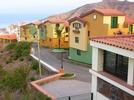Cape Verde Country History
Properties for sale by this property agent:
 | |
|---|---|
| Villa for sale | |
| Location: | Barlaventos, Sao Vicente |
| Beds: | 5 |
| Price: | €400,000 |
 property details property details | |
|
| |
|---|---|
| for sale | |
| Location: | Barlaventos, Santo Antao |
| Beds: | 0 |
| Price: | €150,000 |
 property details property details | |
 | |
|---|---|
| Villa for sale | |
| Location: | Barlaventos, Sal |
| Beds: | 3 |
| Price: | €250,000 |
 property details property details | |
Agent
This article has been submitted by a user of this site. Click the logo for more details.
Article
Article by: emmanuel@seekinternationalproperty.com (Emmanuel Adeyanju) Published: 14/12/2011
Cape Verde Country History
The Archipelago of Cape Verde was not inhabited at the time of its discovery in 1460. It is widely accepted that in 1460 the Genovese António di Noli and the Portuguese Diogo Gomes, both navigators in the service of the Portuguese Crown, discovered the first five islands of the Archipelago. In 1462, the navigator Diogo Afonso would discover the other islands. At this date, the settlement of the Archipelago started with free Europeans and slaves from the African Coast. The island of Santiago was the first one to be colonized and recognized with the status of Village of Ribeira Grande, or the Capital town, presently known as Cidade Velha (Old Town).
The settlement of the islands was very difficult due to the poor natural resources and the unfavourable climate conditions. Nevertheless, personal enrichment was registered among those who dedicated themselves to agricultural activities, such as cotton cultivation, particularly in the island of Fogo, which was for many years the money used to buy slaves from the coast of Guinea, and cattle breeding which allowed for the production of leather, one of the goods exported to the Portuguese Crown.
A population growth was registered when Cape Verde, due to its privileged geographical location at the crossroad of Europe, Africa and America, served as an important commercial slave post, a business that flourished everyday due to the expansion of the commercial routes. From that time until the middle of the 16th century, the Village of Ribeira Grande became very prestigious.
The decline in the economy of the islands started when the Crown allowed that the slaves be bought directly in the Coast of Guinea without making a stop in the Archipelago. Besides being deprived from the lucrative slave trade, the islands were frequently attacked by pirates, and struck by long and constant droughts. These constraints forced the Capeverdeans to search for other sources of survival and a better life outside the Archipelago. Emigration became the main resource for the population. Nowadays, the emigrating population (estimated at above 600 thousand) is well above the local resident population (approximately 434 thousand), and maintains strong ties with the homeland, not only in the cultural aspects, but also through the remittances of money that constitute an important source of incoming currency.
The Capeverdean Nation was formed through the intermarriage of European and African races and cultures and these formed the roots of the country’s cultural identity, characterised by a particular and unique way of life and traditions, as well as the "Creole" language, spoken by everyone in the whole Archipelago, rich or poor; the accent may change slightly from one island to another, but the language is spoken and understood in all of the islands.
The affirmation of the Capeverdean Nation happened on the National Independence Day (the 5th of July 1975), after a long period of struggle for national liberation. On the 13th of January 1991, the multi-party system was introduced in the country, and since then a parliamentary democracy system of government with all the institutions of a modern democracy based on free elections, has been established in the country. Cape Verde is a politically stable country, enjoying peace and social stability, and absence of any kind of conflict.
Article Link: http://www.property-partnership.com/overseas-property-guides/overseas-property-guide.cfm?id=362
Please contact the author at emmanuel@seekinternationalproperty.net for more information.
| @ | MEMBER OF PROJECT HONEY POT Spam Harvester Protection Network |

